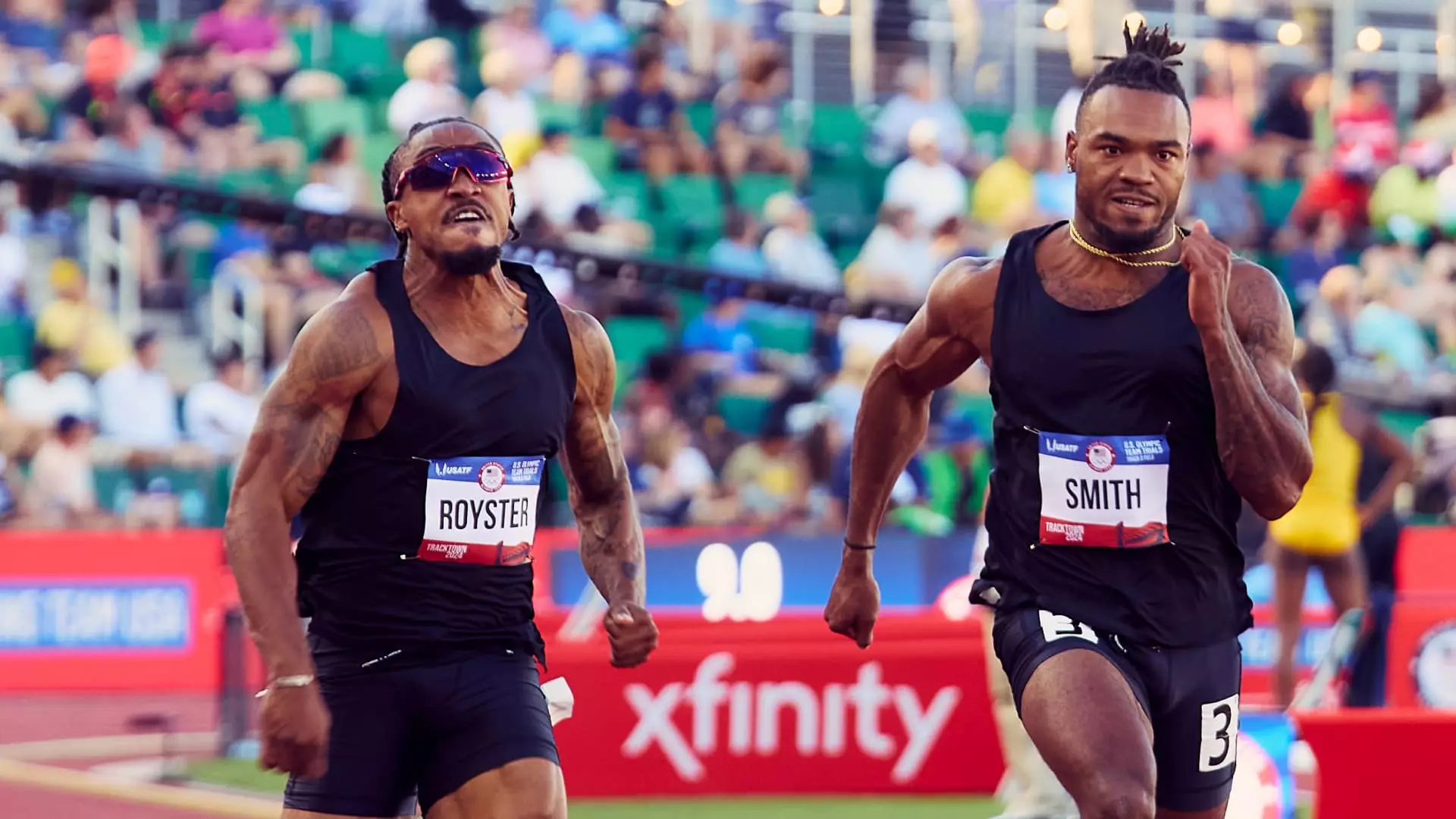The U.S. Track & Field Olympic Trials this year have seen a new wave of unsponsored athletes making waves in the sporting world. These athletes are donning all-black, logo-less gear thanks to the support of Bandit Running’s Unsponsored Project. The project aims to challenge the traditional sponsorship model for professional athletes and provide a platform for up-and-coming competitors. Typically, unsponsored athletes in track and field would have to purchase their own apparel featuring the logos of major brands, essentially offering free advertising for these companies. Bandit Running, on the other hand, offers Olympic hopefuls all-black kits and warmups, along with short-term endorsement deals.
Bandit Running is offering at least 35 two-week deals for unsponsored runners at the trials, serving as a gateway for these athletes to potentially participate in the U.S. Olympic games. These deals include unbranded apparel, a platform, and financial support to cover expenses. The company’s co-founder, Tim West, expressed his desire for a new sponsorship model that supports amateur and sub-elite athletes, aiming to grow the sport from its grassroots level. By providing these short-term deals, Bandit Running hopes to foster a community where brands invest in the development of athletes at all levels.
The Financial Struggle of Unsponsored Athletes
For athletes like Courtney Okolo, a 400-meter runner and Olympic gold medalist, the support from Bandit’s Unsponsored Project comes as a welcome relief. Okolo, who had been sponsored by Nike for four years, found herself in need of support as she competed without a traditional sponsorship. The costs associated with training, travel, and competing can be exorbitant, making it difficult for unsponsored athletes to sustain themselves in the sport. The Unsponsored Project serves as a lifeline for athletes like Okolo, providing them with the resources they need to continue pursuing their Olympic dreams.
Brandee Johnson, a 26-year-old unsponsored track athlete who qualified for the Olympic trials, exemplifies the resilience and determination required to succeed in a sport where sponsorship often dictates an athlete’s trajectory. Johnson, who has been juggling two jobs and a side gig while training rigorously, sees the Unsponsored Project as an alternative avenue to achieving her goals. By aligning herself with a movement that champions inclusivity and support for all athletes, Johnson finds the motivation to push through the financial and logistical challenges that come with competing at an elite level.
The emergence of unsponsored athletes in the realm of professional track and field represents a shift towards a more equitable and supportive model for athletes of all backgrounds. Bandit Running’s Unsponsored Project is paving the way for a new era in sports sponsorship, where brands are encouraged to invest in the growth and development of athletes at every level. With the support of initiatives like these, unsponsored athletes like Courtney Okolo and Brandee Johnson can continue to pursue their Olympic dreams with confidence and determination.

